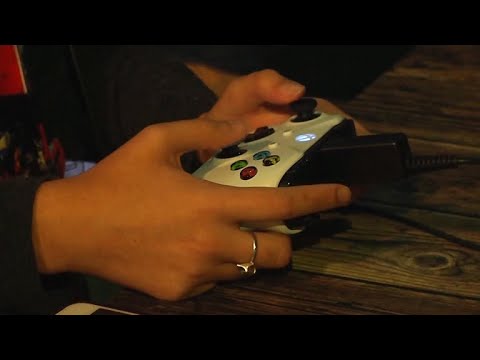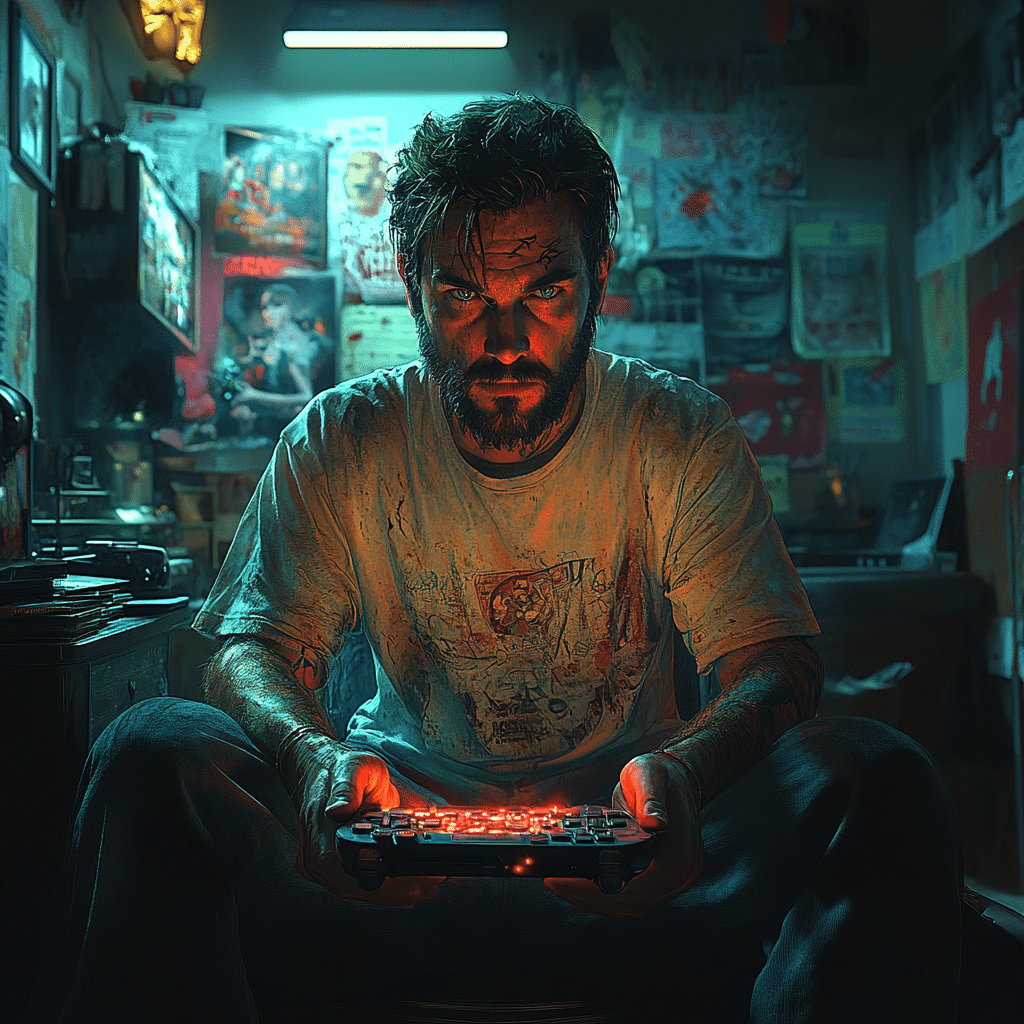
Understanding Video Game Addiction: A Growing Concern
In an age where video game addiction is on the rise, it’s crucial to recognize the psychological and social ramifications that accompany it. Video game addiction, characterized by compulsive gaming behavior, has garnered attention from mental health professionals. The American Psychiatric Association (APA) includes this condition under “Internet Gaming Disorder” in its Diagnostic and Statistical Manual of Mental Disorders (DSM-5-TR). This recognition validates that gaming can transition from a harmless pastime to a serious behavioral addiction.
Symptoms often include withdrawal symptoms like sadness or irritability when not gaming, a compulsive need to play for extended periods, and an inability to enjoy activities outside of gaming. A study from Oxford suggests that dedicating over 15 hours a week can be a tipping point. However, it notes that spending more than 21 hours weekly—a modest 3 hours every day—starts to produce significant negative effects on well-being. The urge to retreat into the gaming world typically stems from the desire for escapism, especially during stressful times, where reality feels overwhelming.
The consequences are varied, impacting mental health, personal relationships, and academic performance. Long-term habits can lead to physical ailments like wrist pain or sleep disorders, further complicating the landscape for those caught in the cycle of addiction. Parents must arm themselves with knowledge to identify and address these hidden struggles in their children.

The Top 7 Signs of Video Game Addiction
Recognizing video game addiction in children and teens often means spotting the signs early. Here are seven telltale signs that could indicate a struggle with excessive gaming:
By staying vigilant for these signs, parents and caregivers can address gaming issues before they spiral further out of control.

The Impact of Video Game Addiction on Family Dynamics
Video game addiction doesn’t just affect the gamer; it deeply influences family dynamics as well. For instance, consider the Johnson family from Seattle. Their teenage son became enthralled with games like Fortnite, leading to hours of isolation. Suddenly, their family dinners became moments of tension, with parents feeling helpless as they watched their child struggle academically.
Communication took a nosedive. Parents often found themselves battling resentment about their child’s lack of engagement in family life while also feeling guilty about their inability to “fix” the situation. Relationships strained as frustration grew, showcasing how the ripple effect of video game addiction can permeate the home.
Feeling powerless in the face of such an addiction can be emotionally taxing for parents. Engaging in open dialogues, expressing concerns, and seeking professional help are essential next steps. As these families learn to navigate the challenges, they often find resilience in shared experiences and congregating with support groups that specifically address gaming behaviors.

The Role of Parental Supervision in Preventing Video Game Addiction
Parental supervision plays a pivotal role in combating video game addiction. Parents can introduce strong controls by actively monitoring their children’s gaming habits. Setting firm limits on screen time and engaging children in discussions surrounding gaming content is foundational to fostering a healthier relationship with video games.
Parents can benefit from collaborating with organizations like Common Sense Media, which provide guidelines on age-appropriate games. By promoting games that focus on teamwork and positive social interaction, families can balance gaming experiences with other fulfilling activities. This proactive approach not only instills accountability but also encourages healthier gaming practices.
By maintaining an open line of communication, parents can invite children to discuss their gaming experiences, addressing concerns and adjusting boundaries as necessary. Creating a structured environment that allows for both gaming and offline activities is crucial for preventing gaming addiction before it takes root.

Innovative Treatments and Interventions for Video Game Addiction
As society grows increasingly aware of video game addiction, innovative treatments are emerging. Programs like reSTART in Washington State have pioneered intensive outpatient treatments that stress a structured approach to managing screen time while restoring balance in life. A blend of therapy and practical life skills training empowers participants to embrace activities beyond the screen.
Another effective treatment method includes wilderness therapy, which combines outdoor activities with therapeutic interventions. For example, a program might engage children in survival skills, which not only helps build resilience but also emphasizes teamwork and community-building skills that often diminish in excessive gaming.
In tandem with these methods, support groups like Online Gamers Anonymous offer a community of individuals experiencing similar struggles. As they work together through discussions and shared experiences, members find relatability and optimism in their journeys toward recovery.
Breaking the Stigma: Understanding Gaming as a Social Activity
Rather than dismissing video gaming as wholly negative, it’s essential to recognize its potential for social bonding. Multiplayer games, particularly during challenging times like the COVID-19 pandemic, have facilitated connections among peers. Games like Among Us have created spaces for social interaction and teamwork, allowing friends to engage with one another virtually.
However, the key lies in moderation. Encouraging families to view gaming as a potential social activity can lead to healthier engagement when managed appropriately. Discussing healthy gaming habits, promoting counterbalance with offline activities, and setting limits are crucial steps toward harnessing gaming as a tool for connection rather than alienation.
Moving Towards a Balanced Gaming Culture
Creating a balanced gaming culture is a collective endeavor that involves parents, educators, and the gaming industry. By promoting age-appropriate games that foster creativity and teamwork, we can shift perspectives on how gaming is viewed. Families can work together to cultivate a bond around gaming while encouraging shared activities.
Advocating for positive aspects of gaming and emphasizing collaborative play helps dissolve stigma while recognizing the gaming medium’s potential for learning and growth. In fostering such cultures, we equip future generations with the tools they require to make healthy choices in a tech-centric world.
Navigating video game addiction requires compassion, innovative strategies, and ongoing dialogue. By breaking through the stigma surrounding gaming and advocating for moderation, we create environments that balance the allure of gaming with the necessity for real-world engagements. In doing so, we not only support individuals battling addiction but also foster communities that value connection and resilience.
Video Game Addiction: Uncovering Hidden Struggles
The Allure and Risks
Video game addiction is a growing concern, with an estimated 5-10% of gamers experiencing it in a way that disrupts their daily lives. Seriously, that’s a significant chunk of folks! These players often pour countless hours into their favorite games, sometimes losing touch with reality. It’s as if they’re enchanted in a digital fairy tale, but there’s a flip side to this fun narrative. Those struggling might face similarities to other types of technology addiction, such as those seen in social media addiction, which can further exacerbate feelings of loneliness and isolation. Just like people can get bogged down by unrealistic expectations, knowing What do entitled mean can shed light on why some find it hard to step back from virtual competition.
Navigating the Grey Zones
Interestingly, every coin has two sides. While gaming can foster community and skills, excessive play starts to cast a shadow. Signs of ‘too much’ include notice of shifting focus on real-world responsibilities. For instance, someone deeply invested might find their grades slipping or social life fading. Sound familiar? It’s a bit like investing without considering the capital gains rate—the pleasure now may lead to costs later. The gaming addiction landscape is often compared to other addictive behaviors, such as Internet addiction disorder, encompassing similar struggles for control and escapism.
Finding the Balance
So, where do we draw the line? Amid this exploration, remember there are resources and communities to help balance gaming and real-life responsibilities. Just like a Remainderman waiting patiently for their stake, we can intervene positively before the game takes over completely. Sometimes, gaming is beneficial—think about how engaging in certain games can enhance cognitive skills or even foster collaboration through cooperative play. The trick is moderation, much like fostering a narrative arc in a good movie, like those exploring themes found in Pax Americana. Knowing how to enjoy the thrill without crossing the line into addiction is key. To sum it up, awareness and discussion can go a long way in recognizing when fun turns into struggle, allowing everyone to enjoy gaming while keeping potential pitfalls in check.

What are the symptoms of being addicted to video games?
Symptoms of video game addiction can include feeling sad or anxious when gaming isn’t possible, needing to play more to feel the same thrill, and giving up other hobbies or relationships because of gaming.
How many hours of gaming is considered an addiction?
When a person plays video games for 15-20 hours a week, it’s considered starting to overplay. Anything more than 21 hours a week, which is about three hours a day, can begin to negatively affect their overall wellbeing.
How to get out of game addiction?
Getting out of game addiction involves recognizing triggers and entering treatment, much like with other addictions. Joining recovery groups, like Online Gamers Anonymous, can provide support and help address the issue.
What causes gaming addiction?
A major reason folks get hooked on gaming is to escape the stress of real life. Video games allow people to step away from reality and be whoever they want, which can be pretty enticing when things get tough.
Is video game addiction a mental illness?
Video game addiction is recognized as a mental illness in the DSM-5-TR, where it’s called Internet Gaming Disorder, meaning it can have serious implications for mental health.
What are the signs of screen addiction?
Signs of screen addiction often look like prioritizing gaming over important activities, feeling irritable when not gaming, and experiencing physical symptoms like headaches or tiredness.
Is 4 hours of gaming a day too much?
Gaming for four hours a day can be considered excessive, especially if it starts interfering with daily responsibilities and relationships. It’s important to keep an eye on how gaming fits into one’s life.
What qualifies as a gaming addiction?
Gaming addiction typically includes persistent gaming despite negative effects, neglecting responsibilities, and a strong need to play regularly.
Is 2 hours of gaming too much?
Playing for two hours isn’t necessarily too much but can be for some, especially if it cuts into sleep or other important activities, so moderation is key.
Can video game addiction be cured?
Currently, there’s no guaranteed cure for video game addiction, but the best approach is ongoing treatment and support, just like with other types of addiction.
How to stop porn addiction?
If you’re looking to stop porn addiction, seeking help from a mental health professional or support group can be a great step. Awareness of triggers and finding healthy coping strategies are also important.
What are the stages of gaming addiction?
The stages of gaming addiction generally start with casual play, leading to increased time gaming, neglecting responsibilities, and ultimately experiencing significant harm in personal or social life.
What are the symptoms of gaming fatigue?
Symptoms of gaming fatigue can include feeling tired or drained after gaming, a lack of interest in other activities, and difficulty concentrating outside of gaming.
What age does gaming addiction start?
Gaming addiction can start at any age, but it often becomes more noticeable during childhood or adolescence when gaming is more prevalent and accessible.
Why is my son obsessed with video games?
A son’s obsession with video games may stem from a desire to escape reality, fit in with peers, or just find enjoyment in the gaming world. It’s important to have open conversations with him about it.
What are some effects of video game addiction?
Effects of video game addiction vary but can include physical issues like pain, sleep problems, and emotional consequences like stress, depression, or irritability when away from gaming.
What are the symptoms of addiction?
Symptoms of addiction in general may include an inability to stop despite wanting to, neglecting responsibilities, and feeling upset when engaging with the substance or activity is not possible.
What are the characteristics of video game addiction?
Characteristics of video game addiction can include excessive time spent gaming, prioritizing games over other important aspects of life, and using gaming as a way to cope with difficult emotions.
What are the stages of gaming addiction?
The stages of gaming addiction typically start with casual gaming, followed by increasing time spent playing, neglecting other hobbies and social interactions, leading to serious consequences in life.




























